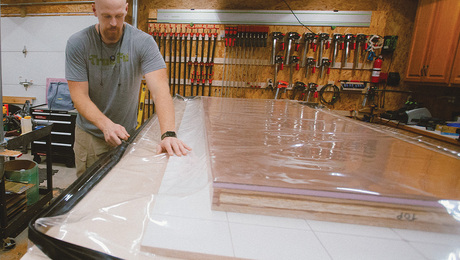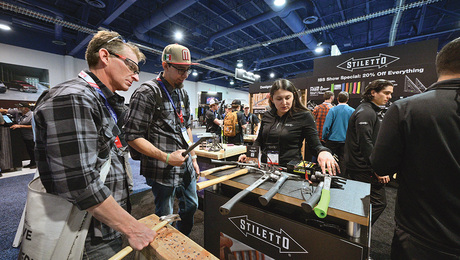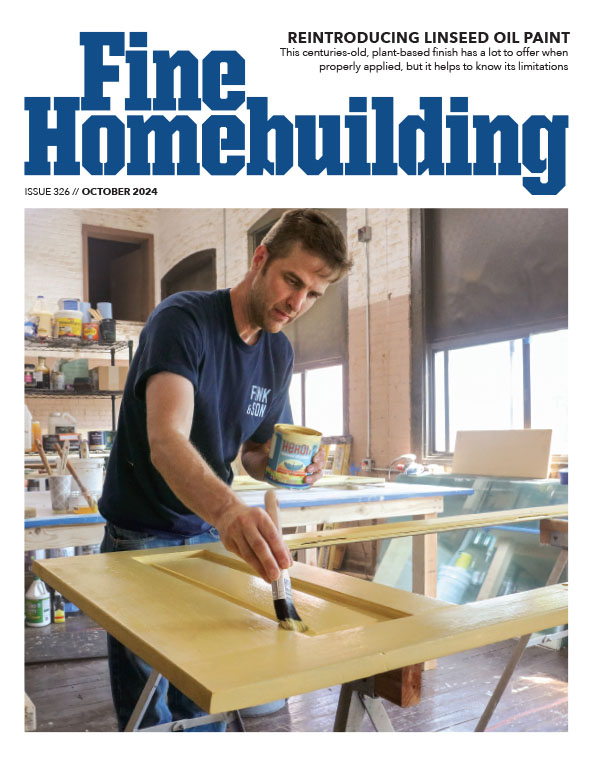Tailgate: David Crowe, Economist
The National Association of Home Builders’s chief economist sees conditions improving, but slowly.

What got you interested in the economics of home building?
I got into it kind of indirectly. My Ph.D. and my education were more heavily concentrated in urban economics: the arrangements of cities, what makes a city, how transportation works. I went to work for HUD, and it turns out that there’s a lot more H in HUD than there is UD. I ended up becoming much more interested in housing issues. That started virtually at the beginning of my career. I was with HUD for 13 years, and I’ve been with NAHB for 21.
What kinds of data do you track?
The most obvious ones are housing starts, housing sales, and house prices. But we look at demographics. We look at material prices. We look at overall economic conditions such as gross domestic product, employment, and incomes.
The past few years have been pretty tough. Has it been difficult for you to deliver so much bad news?
Very. It’s just not fun to get up in front of a bunch of builders and tell them that the recovery is yet to ome, that they have to do some more belt-tightening.
I want to give people the truth, and my goal has always been to make sure that whatever I say is the best information available. But as a result, it has tended to be if not negative, then not all that positive. It does get tiresome to have to keep telling people to keep hanging on, it’ll come sooner or later. I’ve described it sometimes as feeling like being the parent in the front seat when the children are in the back seat saying, “When are we going to get there?” and all I can say is, “It’ll be soon, it’ll be soon.”
How do you see homebuilders coping?
A lot of them have gone into remodeling,
which hasn’t necessarily made traditional remodelers happy because they’ve seen a lot more competition. Those who may not have taken a maintenance job before will do that now to keep their crews working.
What’s that doing to remodelers?
It’s more people competing for fewer dollars. Remodeling didn’t fall off as dramatically as new construction, but it did fall off.
Do you see any light at the end of the tunnel?
Yeah, but the difficulty with the light at the end of the tunnel is that it’s a dim light. There’s a multitude of small signals. I keep saying that we are in a recovery, but what we’re waiting on now is jobs. People are hesitant to make a major purchase such as a house when they’re not feeling secure enough about their job. It’s not so much people who are unemployed—but people who are employed—who are nervous.
Part of your job is monitoring economic trends. What are the key trends you’re seeing for 2011?
Very slow recovery. The trend will be an improvement in the job market. That will provide a little bit of comfort for the people who are still working. Also, increased consumer confidence.
At the same time, I don’t expect to see much increase in mortgage rates or a fall in house prices. The conditions for buying a house will remain fairly good. So those conditions combined with the improvements in the overall economy and job market should mean that we should begin to see some pickup in housing activity in both construction and sales.
The wild card is the number of foreclosed homes on the market and whether that gets worse before it gets better.
What’s the most fulfilling part of your job?
Education. Maybe I’m an academic at heart. I very much enjoy explaining economic principles and economic data to builders, who are in aggregate very smart people and are very inquisitive. They want to know why things happen, and I like that. I feel I have a means of transferring sophisticated economic information into understandable language, and I usually am successful at explaining most things.
You enjoy working on your own house. What’s your biggest accomplishment?
I guess a rather large deck—it’s like six levels of decking. I had an architect draw it for me because I wanted to make sure I lived by code and that it would survive, but I did the work. Decks are fun because they don’t have to be too refined. I’m currently remodeling my kitchen. It’s a much more demanding job because the gaps show.

























